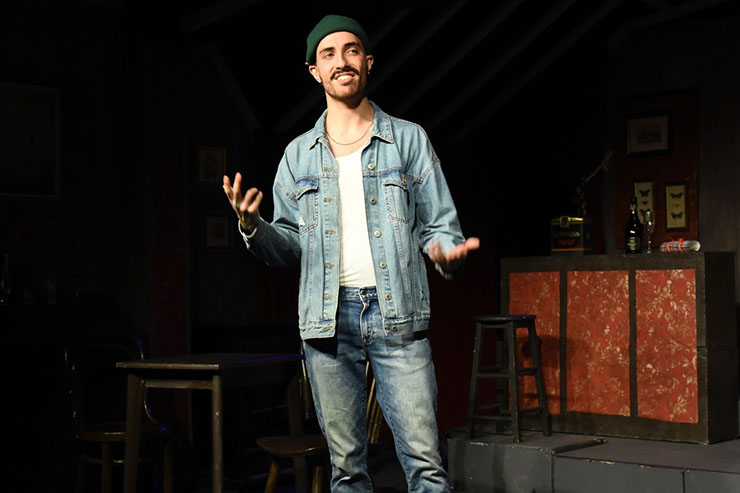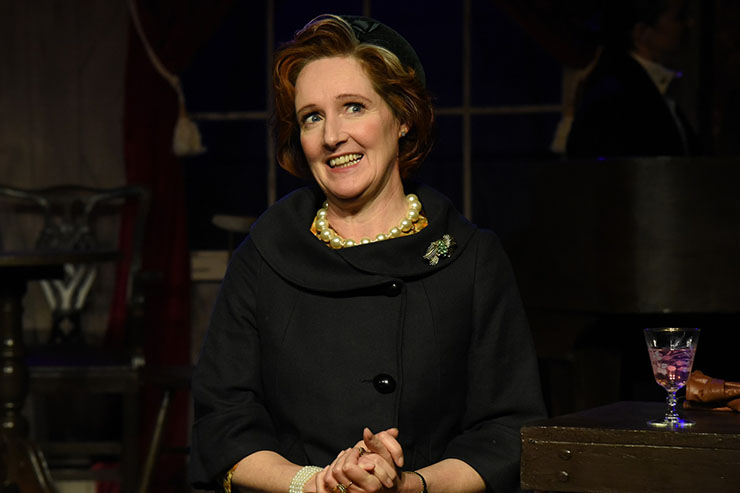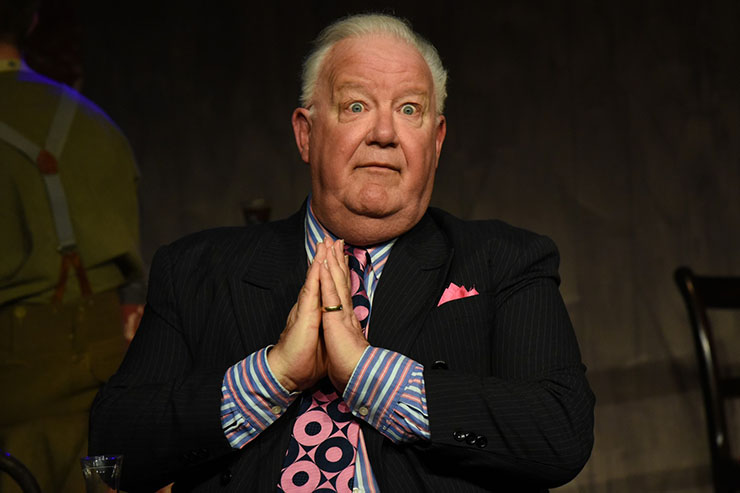We like this kind of theatre. It’s taut, it’s tight and the themes remain important in our lives.
This performance offered us just over half a dozen monologues covering a hundred years of gay and lesbian history. In the UK, some of us lived through parts of the saga and the protests for recognition of these rights. We also had friends, relatives or colleagues who were victimised, humiliated or lost their jobs. There were plenty of people wounded, damaged and beaten up.
No wonder that this collection of tales – or short one-person plays – provided another full house at the Brighton Little Theatre. Yet ‘Queers’ was not simply a retrospective or a celebration of the current social gains. It also reminds us that in many communities and countries the stories and tragedies presented by our narrators remain highly relevant within the wider LGBTQ+ community.
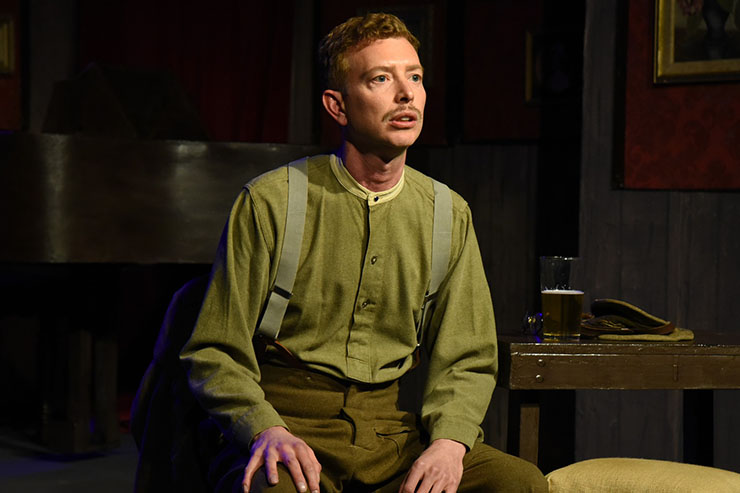
We started the chronology with Mark Gatiss’s ‘The Man On The Platform’ as directed by Harry Atkinson and performed by Perce (Tom Slater-Hyndman). It’s 1917 and the First World War is not over. We see a man on stage in a grey suit. Perce has short hair, spectacles and a moustache. Behind him are two seats and a coffee table.
Perce is close to the railway station. All the time there are stretchers coming in, going out, with name tags on the side. Prisoners are in chains. His generation still remember what happened to Oscar Wilde, the writer imprisoned for several years for ‘homosexual acts’ and ‘gross indecency’.
Amidst the melee, Perce sees old friend Terrence on the platform. Their fingers touch. Hands grasp heads. Their lips meet.
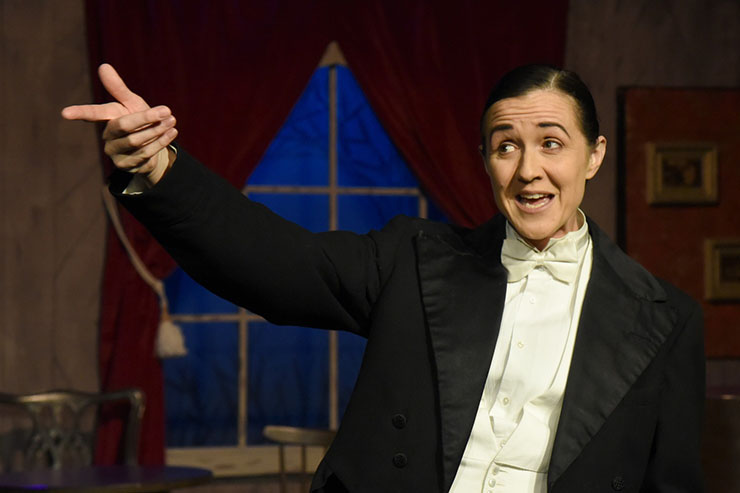
In ‘The Perfect Gentleman’ (by Jackie Clune) Bobby was performed by Erica Thornton and directed by Emma Spencer. This woman wearing a top hat wants to tell us something: “I am not a man. I don’t wish to be a man”. It’s 1929. She meets another women, puts arms around her, strokes her face, moves her hands across her body. She felt silly in skirts but liked walking down the Strand. A woman had wanted to marry her. Their hands fumbled in their private places. They were happy but always feared being found out. So she wore a jacket with a smell of tobacco in her breast pocket.
‘Missing Alice’ (Jon Bradford) – performed by Sam Nixon and directed by Susanne Crosby – emerges as a story where Alice’s marital role is to conceal her husband’s affairs with other men. Meanwhile, in Mathew Baldwin’s version of ‘I Miss The War’ (directed by Joseph Bentley) Allan Cardrew played Jack in the buzzing 1960s. The Kinks were playing camp with ‘Dedicated Follower Of Fashion’. An older gay man is drinking Harvey’s Bristol Cream. This brought up the issue of what solidarity might be lost when homosexuality was decriminalised? The perils of successful social change!
After a break for the always cosy Little Theatre bar, ‘More Anger’ – written by Brian Fillis and performed by Jack Marchant – with Susanne Crosby’s always reliable director’s hands.
‘A Grand Day Out’, written by Michael Dennis and directed by Sarah Edinburgh, presented us with Andrew (Jimmy Schofield) in the suitably accurate ‘dunno’ discourse of the vague late teenager. He’s tested positive in the era when AIDS (or ‘The Gay Plague’ as the popular press labelled it) was a life threatening illness.
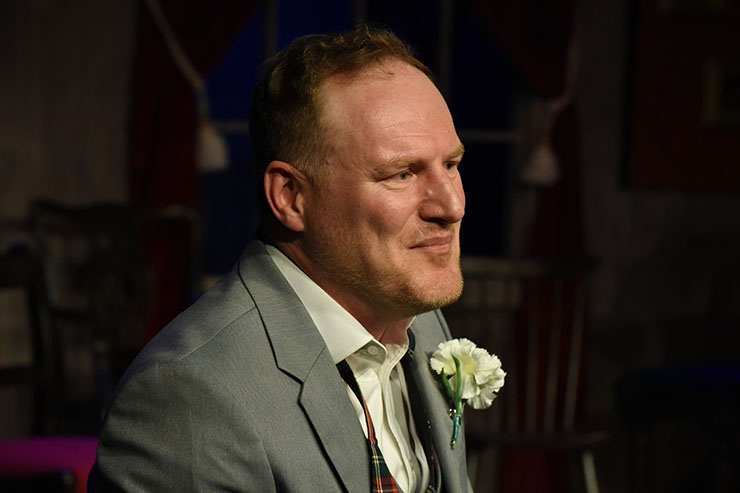
We completed the evening’s smörgäsbord drama of LGBTQ+ experience with a more contemporary recipe. ‘Something Borrowed’ – written by Gareth Mclean and directed by Jo Gatford – struck a more downbeat note. Here, Steve (Phil Nair-Brown) seemed to find the fairytale of wedding cake, celebrations, sweets and snacks gradually crumbling like the icing melting on MacArthur’s Park cake that took so long to bake.
‘Queers’ is seven short monologues in one night. Punchy. Telescopic. Time travelling.
Creating and crafting these stories from a range of writers, directors and actors – covering more than a hundred years – is a formidable artistic achievement. It would be cruel to ask for more. Yet, it is tempting to imagine how the separate characters might converse with each other across history! Only theatre can do that!
Photos by Miles Davies

